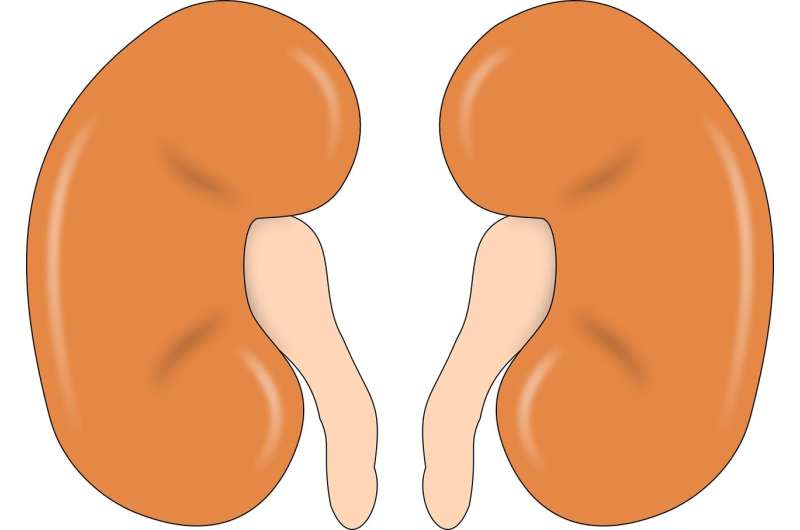
Cerebral palsy and kidney disease can be deeply intertwined.
In childhood, the effects of the neurodevelopmental condition—like decreased physical activity and urologic dysfunction—are risk factors for kidney disease. The adverse relationship continues through adulthood as those with cerebral palsy often have high blood pressure, another risk for developing kidney problems.
What’s more, a recent Michigan Medicine study revealed that advanced kidney disease is associated with death for cerebral palsy patients independent of related factors, such as cancer and cardiovascular conditions.
The results, published in Frontiers in Neurology, are not what surprised the team of researchers. Rather, they suspect physicians may be missing early signs of kidney disease while examining cerebral palsy patients—when there may be interventions to prevent it from getting worse.
How?
By overestimating kidney function, despite using standard methods of measurement, says Daniel Whitney, Ph.D., lead author of the paper and assistant professor of physical medicine and rehabilitation at Michigan Medicine.
“The current clinic methods to assess kidney function are influenced by muscle mass in a way that provides an inaccurate picture of kidney health for patients with cerebral palsy,” Whitney said.
Errors in interpretation
When drawing blood to test for kidney function, physicians zero in on creatinine, a waste product of the muscles. The creatinine level is put into an equation that estimates how well the kidneys are filtering the bloodstream. The higher the creatinine, the worse the kidney is functioning.
The issue, Whitney notes, is that people with cerebral palsy have low muscle mass and, therefore, typically have low creatinine levels. So, when kidney function is calculated, the value reflects more on the low muscle than it does the actual kidney function, and clinicians may interpret the function to be better than it actually is.
“It’s not an error in the test so much as an error in the interpretation of it,” he said. “Future work will need to identify a better way to capture kidney function given the issues with these clinical tests for people with cerebral palsy.”
Not only is estimated glomerular filtration rate (eGFR) from creatinine commonly used to understand kidney function, but it defines the stages of kidney disease and has guided recommendations for when patients should be referred for nephrology evaluation. If current methods overestimate kidney function in a population, they may not be referred for a nephrology evaluation at the appropriate time, says Andrea Oliverio, M.D., co-author of the paper and assistant professor of nephrology at Michigan Medicine.
“Physicians also use these estimating equations to guide dosing for some medications, so patients with overestimated kidney function may receive higher doses of medication than they should for their true kidney function,” Oliverio said.
The research team analyzed claims data of more than 16,700 adults with cerebral palsy, of which 7.3% had kidney disease. After accounting for two dozen comorbidities, they found kidney disease was associated with higher mortality, especially end-stage kidney disease.
Necessary changes
Poor kidney health also increases risk for cardiovascular disease, one of the leading causes of death for people with cerebral palsy and the general population. These findings call into question if kidney disease may be driving, in part, the well-known cardiovascular disease burden for this population that may have gone overlooked for so long, Whitney says.
“This helps us see that kidney disease is not some passive, benign condition, but that it’s a problem, and unfortunately, it’s overlooked,” he said. “It’s not like your kidneys hurt when they are low functioning, it’s not that obvious. So, we really have to be more cognizant early on to detect and manage declining kidney function before it causes more medical issues.”
Whitney’s research team is in the process of examining methods that more accurately measure kidney function for people with cerebral palsy. Oliverio said catching kidney disease early allows physicians to recommend medications and lifestyle changes that may delay the progression of kidney disease.
“We don’t necessarily need to re-invent the wheel when it comes to using standard clinical tests to measure organ health,” Whitney said. “But, for people with cerebral palsy and other disabilities, we need to figure out how to better utilize these tests and their values to capture the individual’s true organ health and function.”
Noah Fromson, University of Michigan

